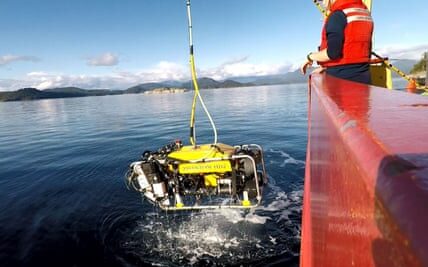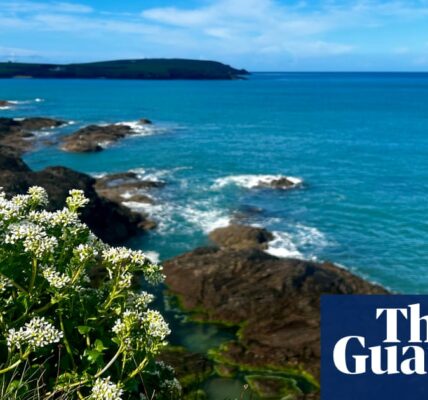How a Sheikh from the UAE Quietly Brokered Carbon Deals for Forests Larger Than the UK: The Modern “Scramble for Africa”
T
Large portions of African forest are being transferred through major carbon offsetting agreements, totaling an area of land that exceeds the size of the United Kingdom. These deals, orchestrated by a lesser-known member of Dubai’s royal family, span up to 20% of the countries involved and have sparked worries about a potential “race for Africa” and its carbon reserves.
Sheikh Ahmed Dalmook al-Maktoum, the chairman of newly established company Blue Carbon, has recently disclosed plans for partnerships with African nations to acquire land rich in wildlife and biodiversity, potentially generating billions in offsetting revenue. Despite lacking prior experience in conservation, the sheikh is leading these exploratory deals.
So far, the deals cover a fifth of Zimbabwe, 10% of Liberia, 10% of Zambia and 8% of Tanzania, amounting to a total area the size of the UK. In October, Blue Carbon signed its latest deal for “millions” of hectares of forest in Kenya. The company said it was also working on an agreement with Pakistan. More deals are expected in the coming months. The carbon assets associated with the deals could be bought up by major polluters and used towards their own targets under the Paris agreement.
Blue Carbon is headquartered in the United Arab Emirates, where the Cop28 summit is set to commence this week. According to a statement from the company, they anticipate that credits earned from the programs will be utilized as national-level commitments to the 2015 Paris agreement.
There have been concerns raised regarding the agreements and the sheikh’s past business dealings. This includes his involvement in selling Russia’s Sputnik V vaccine at a higher price during the pandemic, as well as his connection to an Italian fugitive who is listed as a Blue Carbon advisor.
The deals are made in response to extensive examination of the effectiveness of carbon markets in financing efforts to combat climate change while also safeguarding biodiversity and community rights.
Axel Michaelowa, an expert in carbon markets from the University of Zurich, emphasized the significance of carbon markets in directing resources towards projects that may not have been pursued otherwise. However, he also warned that if the rules are loosely interpreted, there is a risk of generating unreliable carbon credits which could damage the trust in the market.
Sheikh Ahmed’s office declined to arrange an interview for this article. Blue Carbon stated that their goal with these projects is not only to speed up global efforts against climate change, but also to address important environmental issues at a local level, bringing benefits to communities and promoting sustainable development in the countries involved.
Large portions of land are being taken over.
Limited information has been disclosed about the Blue Carbon agreements, but the Guardian has interviewed individuals involved and has accessed a preliminary contract from Liberia in July. The proposed agreement would grant the UAE company exclusive permission to sell carbon credits for a period of 30 years, with 70% of the profits going to them. According to the guidelines set by the Paris agreement, countries that sell these credits would not be able to use them towards their own environmental commitments.

Several individuals involved in these transactions pointed out that carbon markets offer crucial financial aid to African nations, as other avenues for climate funding have been inadequate. Yet, there were also some who expressed worries, stating that the magnitude of the land deals resembles a “new race for control over Africa”.
According to Alexandra Benjamin, a forest governance campaigner with the NGO Fern, many areas of land in Africa are being taken over by Blue Carbon through lengthy agreements. This is putting the future of the land, which is crucial for the livelihoods of millions of vulnerable communities, at risk. Benjamin, who specializes in Liberia and Ghana, believes that at the upcoming Cop28 meeting, countries should acknowledge these deals as land grabs when discussing the regulations for carbon offsetting. She also argues that forest communities should have the right to give their consent before any deal is made.
Numerous African leaders are fervent advocates of utilizing carbon markets as a means to finance efforts against climate change, after previous commitments for alternative sources of funding were not fulfilled. Kenyan president William Ruto has described the continent’s carbon assets as an “exceptional economic opportunity”.
Blue Carbon announced that their carbon projects would have positive impacts on communities and would be subject to thorough auditing in strict markets. They emphasized the importance of obtaining free, prior, and informed consent in their project development strategy, highlighting the distinction between the voluntary carbon market, which has faced concerns regarding human rights, and compliance markets.
NGOs in Liberia have expressed concerns about how the potential agreement may affect land rights for communities and their ability to access the forest, which is crucial for their livelihoods.
David Obura, the founder of Cordio East Africa and leader of the Intergovernmental Science-Policy Platform on Biodiversity and Ecosystem Services (IPBES), stated that carbon is a valuable natural resource that can be easily monetized. This means that resources that cannot be monetized are often overlooked and neglected. There is a significant risk of exclusivity and taking away access and rights from individuals and communities.
Potentially, the money generated from these credits could be allocated towards aiding developing nations in adapting to climate change and preserving their natural resources. This would involve safeguarding carbon storage areas and promoting biodiversity. While the Blue Carbon initiatives have the potential to be significant, they still require official approval under article 6 of the Paris agreement in order to be included in formal carbon trading.
The carbon trading system may involve countries like the UK, Saudi Arabia, and China purchasing emission reductions from developing countries in order to meet their own emission targets through offsets. The UAE has positioned itself as a top buyer of African carbon credits, committing to buying $450 million of credits by 2030 at the Africa Climate Summit held in September.

According to recent analysis, the United Arab Emirates has the third largest intentions for expanding its oil and gas production in the world. Only Saudi Arabia and Qatar have bigger plans.
Blue Carbon has entered into an agreement with First Abu Dhabi Bank, the biggest bank in the UAE, to fund investments in forest carbon projects in September. The UN Development Programme has acknowledged being in communication with the company regarding the development of these initiatives.
Blue Carbon stated its dedication to strict regulations regarding appropriate methods for carbon projects and pledged to adhere to any agreements made by governments at Cop28. They also mentioned their team’s prior expertise in developing carbon projects.
More information was provided by Angela Giuffrida and Pjotr Sauer in their report.
Find more age of extinction coverage here, and follow biodiversity reporters Phoebe Weston and Patrick Greenfield on X, formerly known as Twitter, for all the latest news and features.
Source: theguardian.com


